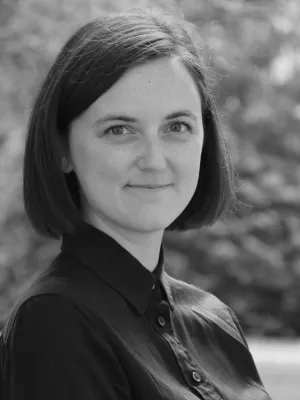
Christie Nicoson
Doctoral Student

Peace in a Changing Climate : Caring and Knowing the Climate-Gender-Peace Nexus
Fred i ett föränderligt klimat : Omsorg och kunskap i kopplingen mellan klimat, kön och fred
Author
Summary, in English
However, it is not only the impacts of climate change that are gendered, but also the way that we know what climate change is in the first place. The problem of climate change is something we each may experience in our day-to-day life: a particularly hot day in the middle of a cold season, wildfires that seem to come more and more frequently, or rains that used to reliably fall at the same time but now feel erratic. Climate science aggregates data and runs scenarios that allow us to look past the distinct times and locations of these events to see long-term changes, and to understand the global processes driving this change. Yet the tools and tricks that help us make sense of the problem of climate change rely on logic that divides women and men, emotion and reason, nature and society. How can we expect solutions derived from violent logics and its technologies to not only ‘fix’ the problem of climate change, but to create peaceful solutions?
I show that climate, gender, and peace are connected in a nexus by care, and that what we do with that knowledge – in care labor, values, affection, or politics – impacts how we imagine and create peace amidst the ever-growing challenges of climate change. Based on field research with community groups in Puerto Rico, this thesis demonstrates not only that it matters what knowledge is used to understand climate change, but also what this knowledge does. I find that care-based knowledge (knowing informed by caring values and practices) allows study of the nexus as experiential relations of different beings with specific histories and values. It allows study of how affect works reciprocally – how emotions affect people back-and-forth as part of experiencing climate change. This thesis identifies values, practices, and hopes of peace – not a goal or blueprint for some ‘right’ or ‘best’ peace, but rather, what kind of situated knowledge and judgements people use to strive for both ecological and social well-being in different contexts of climate change.
Department/s
- Department of Political Science
Publishing year
2024
Language
English
Publication/Series
Lund Political Studies
Issue
215
Full text
Document type
Dissertation
Publisher
AllMedia Öresund AB
Topic
- Political Science
Keywords
- climate change
- peace
- intersectional feminism
- ethics of care
- phenomenology
- Puerto Rico
Status
Published
Supervisor
- Fariborz Zelli
- Karin Aggestam
ISBN/ISSN/Other
- ISSN: 0460-0037
- ISBN: 978-91-8104-017-3
- ISBN: 978-91-8104-016-6
Defence date
26 April 2024
Defence time
10:00
Defence place
Edens hörsal, Allhelgona kyrkogata 14, Lund
Opponent
- María Martín de Almagro lniesta (Research Professor)

